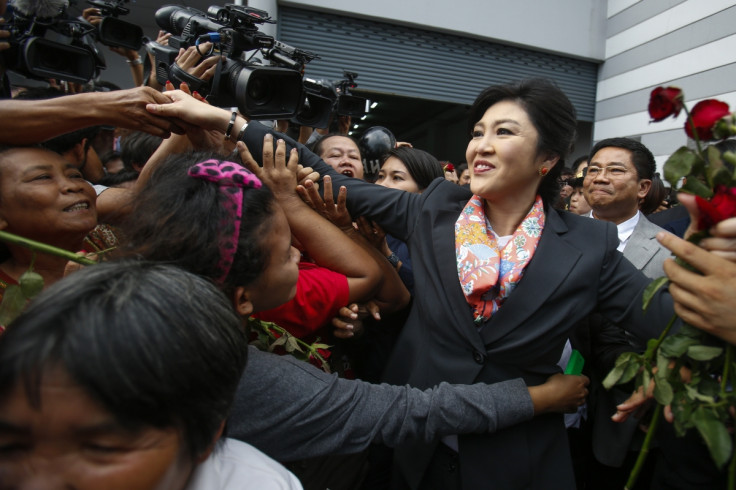Thai Opposition Calls for 'Final Fight' to Install New Government

Thailand's anti-government protesters are preparing for a "final fight" on Friday to install a new government, even as the Red Shirts have called for a rally in support of dismissed prime minister Yingluck Shinawatra.
The protesters, who have been demanding the removal of the prime minister for the last six months, moved quickly after Yingluck's Puea Thai party named deputy premier Niwattumrong Boonsongpaisan as her replacement.
"Tomorrow we will take steps towards appointing a new government," protest spokesman Akanat Promphan told AFP.
"After the Constitutional Court's decision yesterday we decided to move up our schedule.... the government has lost all legitimacy and any claim it has to govern the country," Promphan added.
The protest leaders have said they would stage a "final fight", looking to ride the wave of the court ruling against Yingluck and seal a final victory in their struggle.
Meanwhile, Yingluck's supporters have said they will hold a rally in Bangkok on Saturday, protesting against the court verdict.
After the Constitutional Court's decision yesterday we decided to move up our schedule ... the government has lost all legitimacy and any claim it has to govern the country.
The Constitutional Court ruled on Wednesday that Yingluck had violated regulations while transferring the chief of the National Security Council in 2001 and that she should be removed from office.
The Thai opposition, which has consistently said Yingluck was running a proxy government in favour of her powerful brother and former prime minister, Thaksin Shinawatra, had brought several other charges relating to abuse of power against her.
However, the supporters of Yingluck, Thailand's first female prime minister, have said the ruling was the result of a "conspiracy" against the democratically elected government.
Thailand has been in turmoil ever since anti-government protesters stormed the streets of the capital in November 2013 demanding Yingluck's resignation.
Political experts have said the latest developments could worsen the long-running power struggle between supporters of Thaksin and his royalist detractors.
The opposition's move to appoint a new prime minister "is the red line not to be crossed," Thailand-based author and academic David Streckfuss said, according to the Bangkok Post.
It was not clear if their move would have legal backing, the Post reported, adding that the constitution has an article that allows the appointment of a new executive body by the Senate.
© Copyright IBTimes 2024. All rights reserved.






